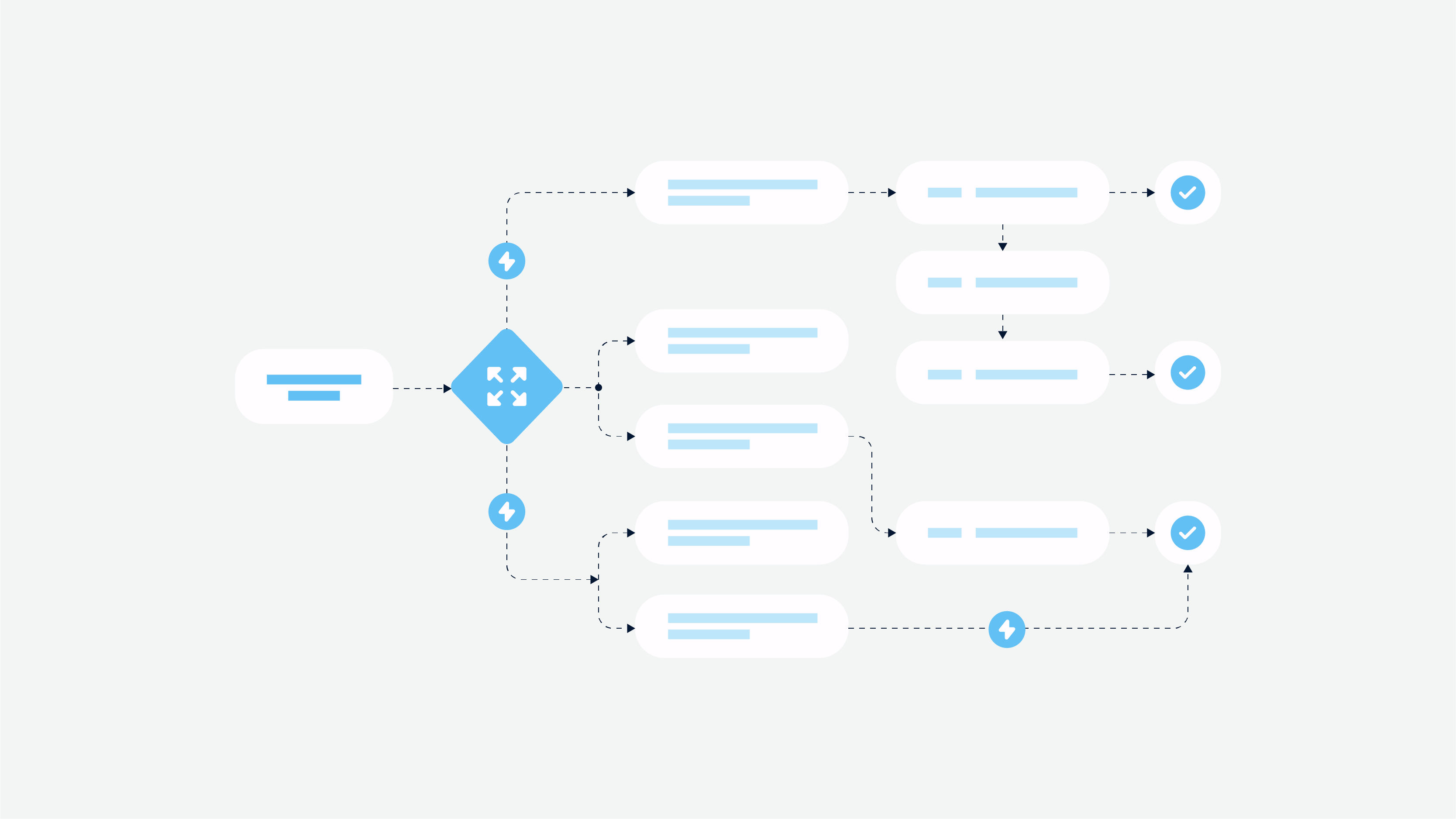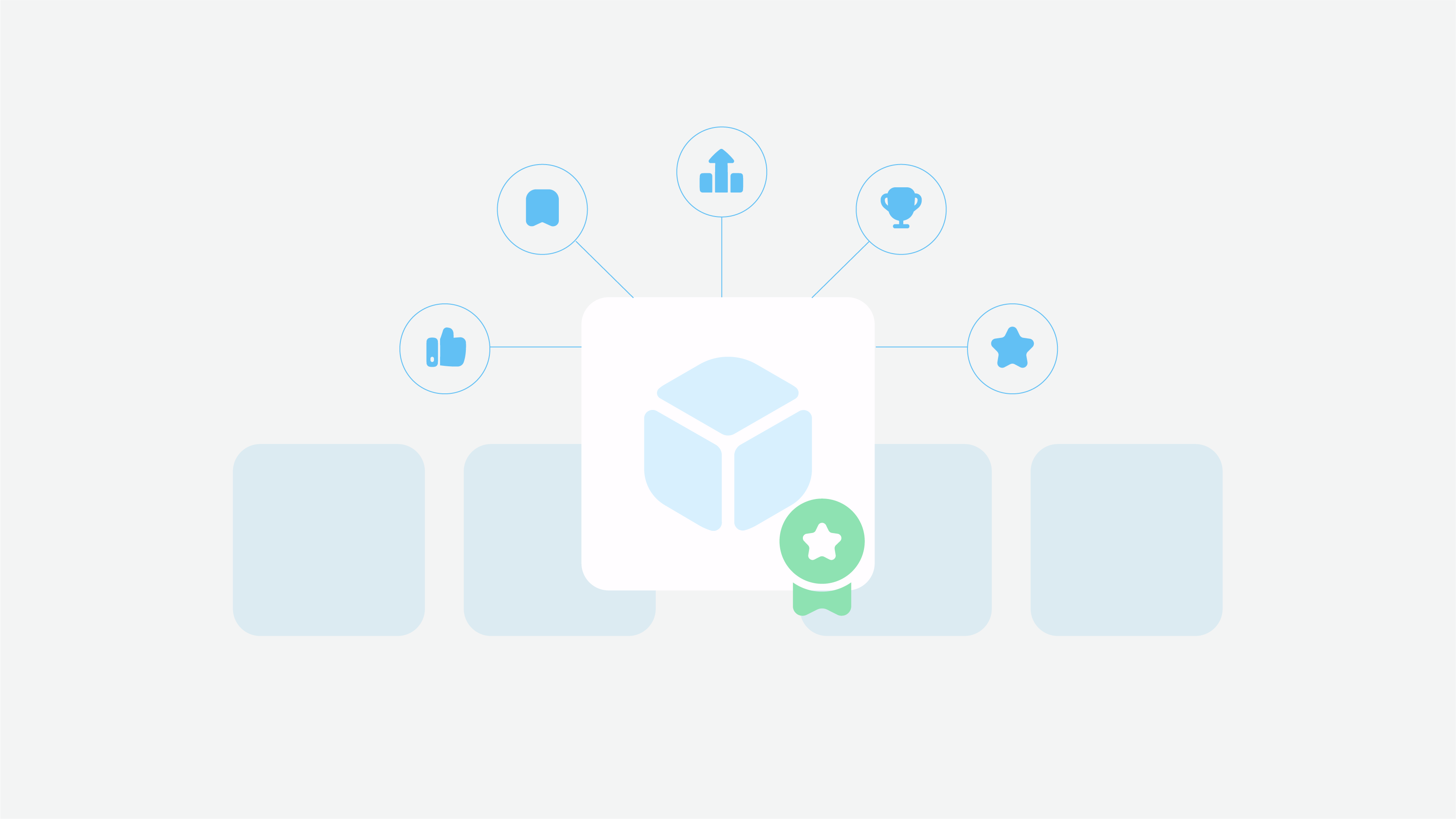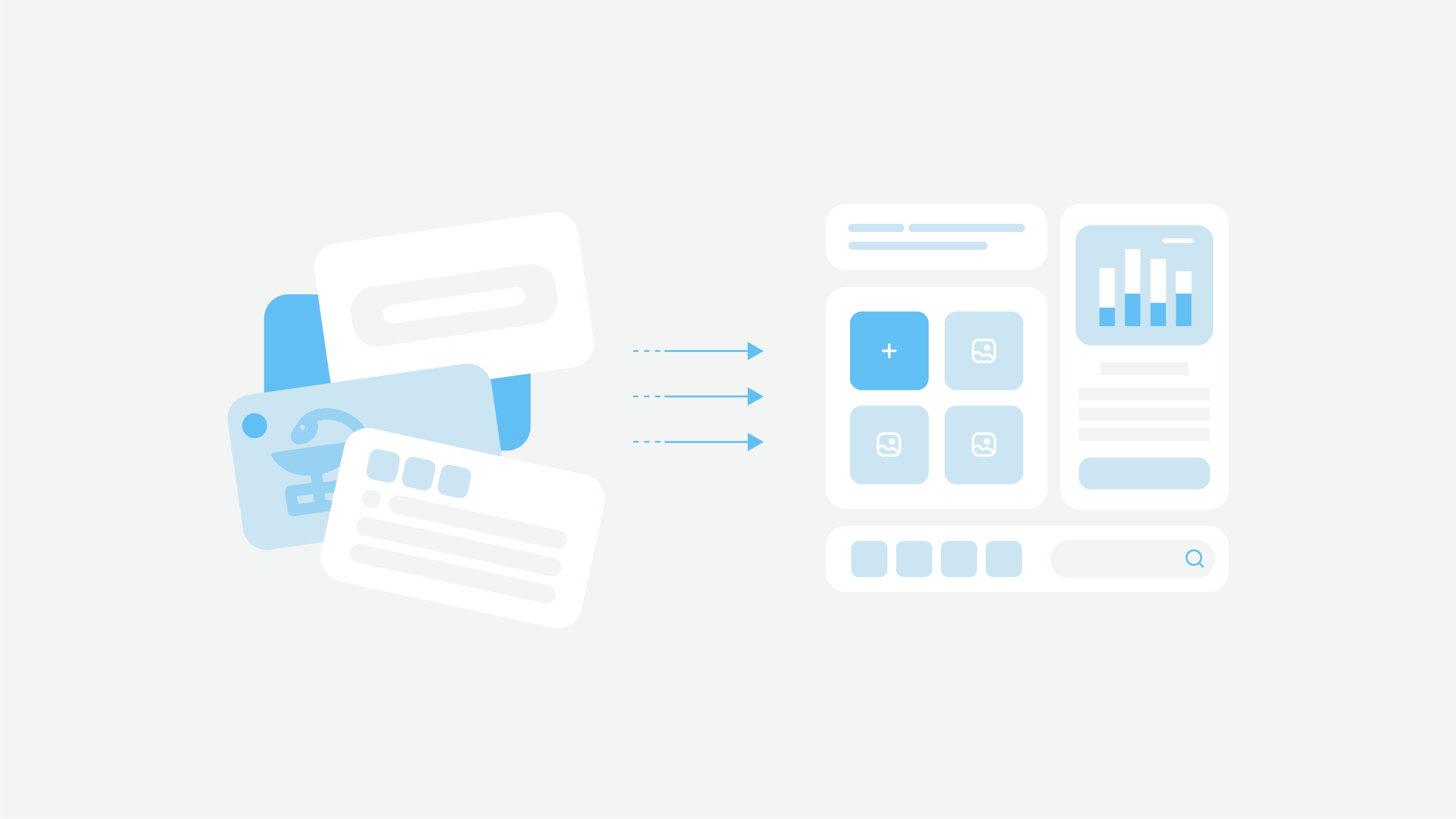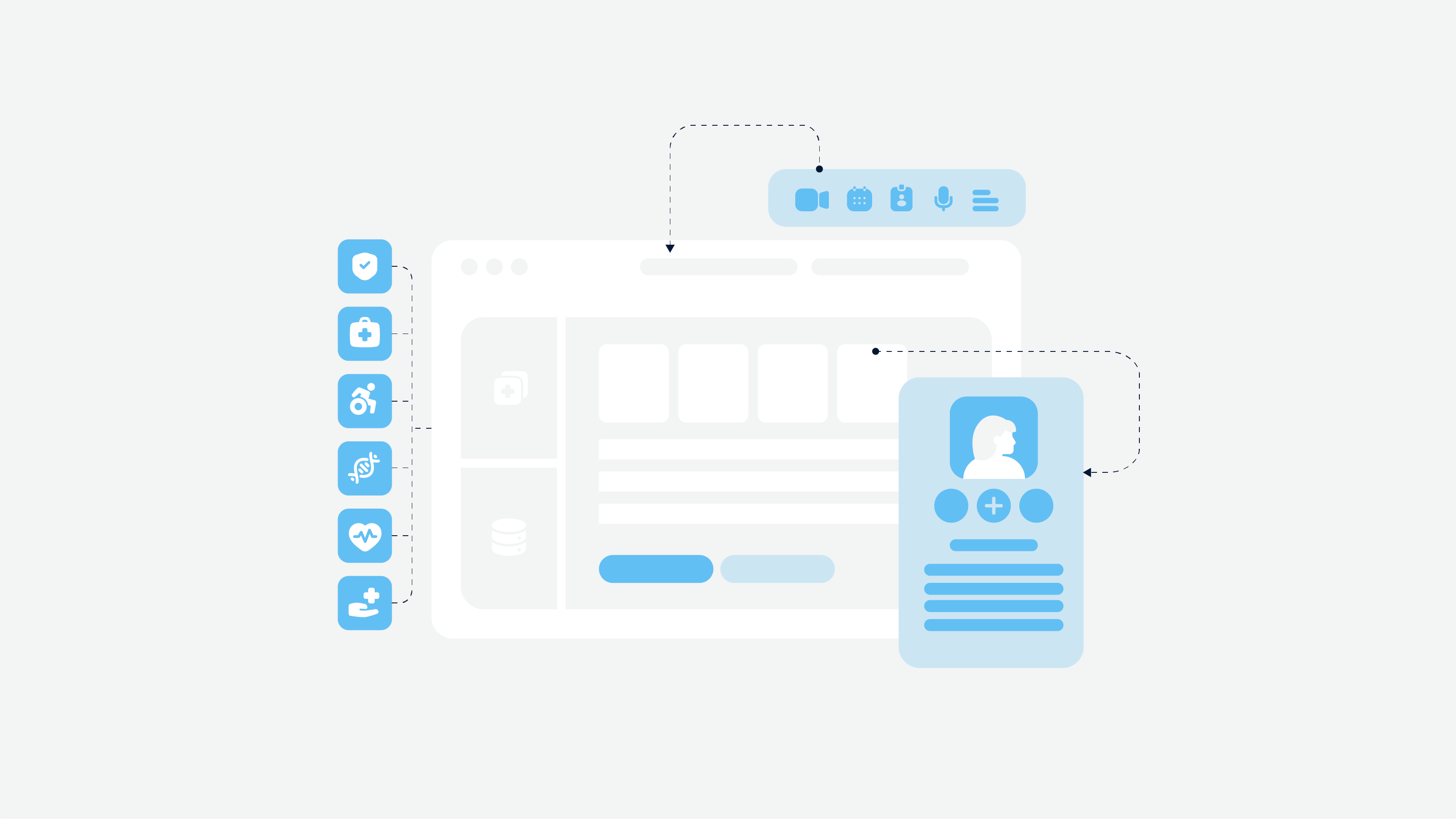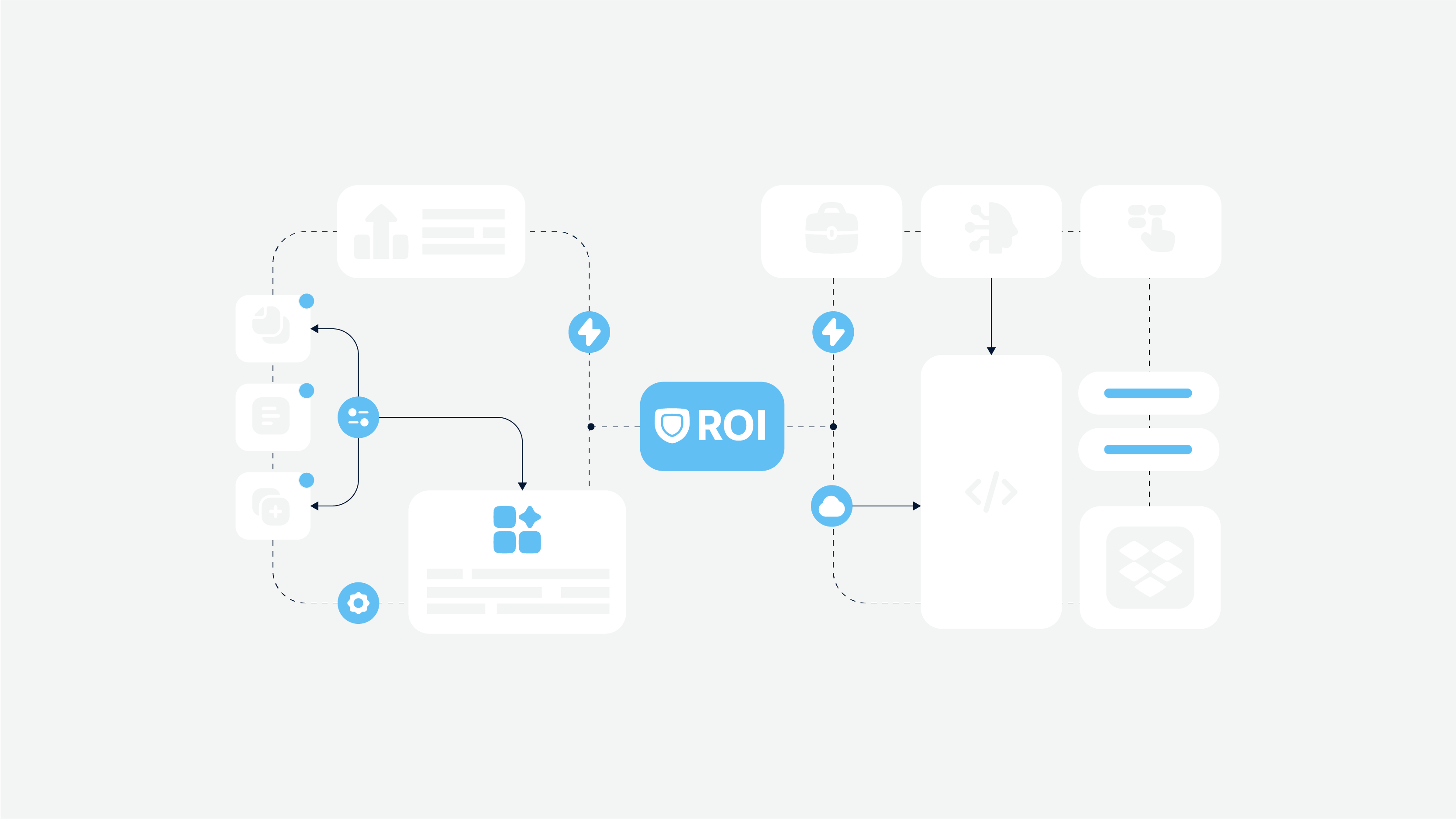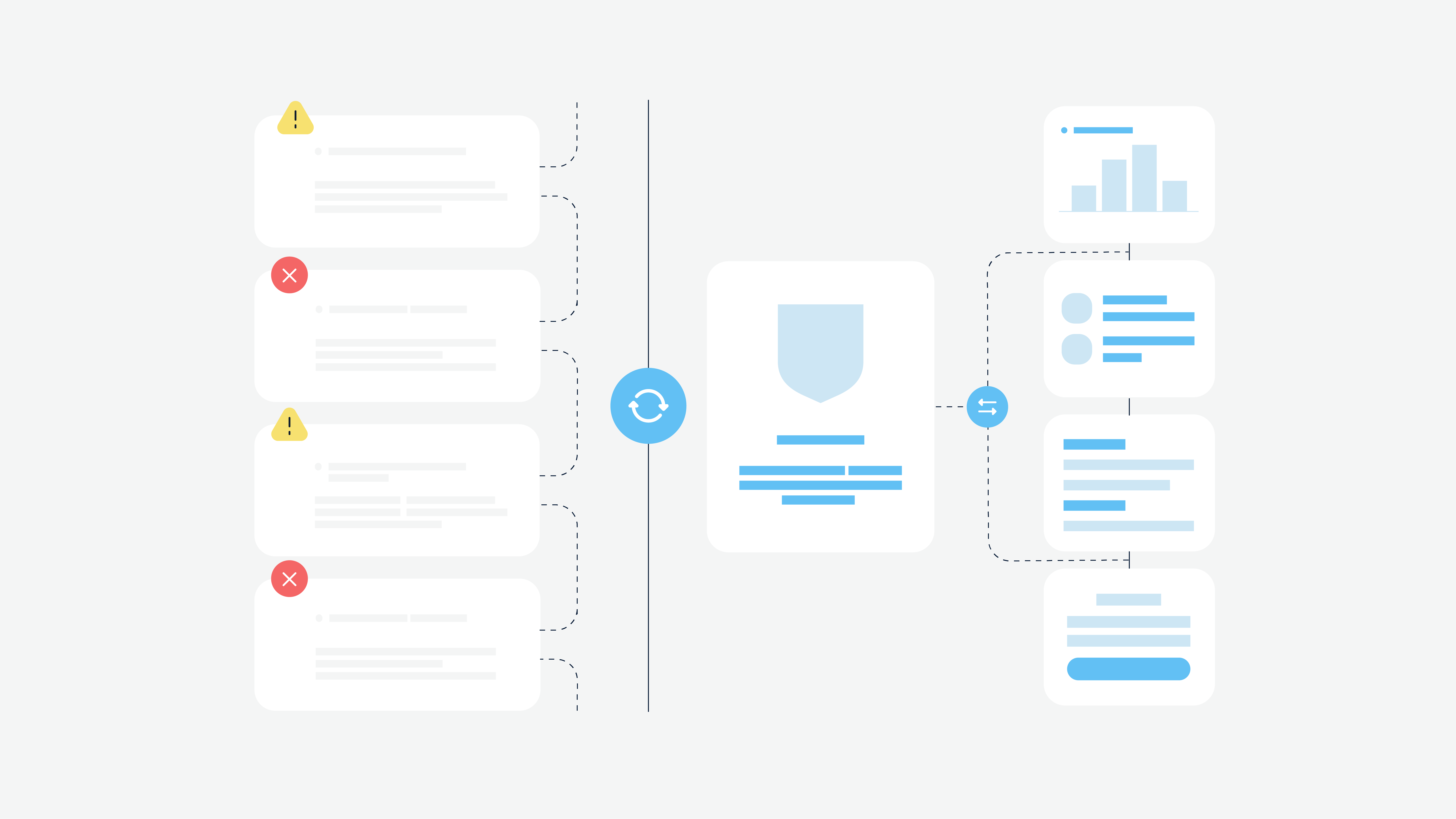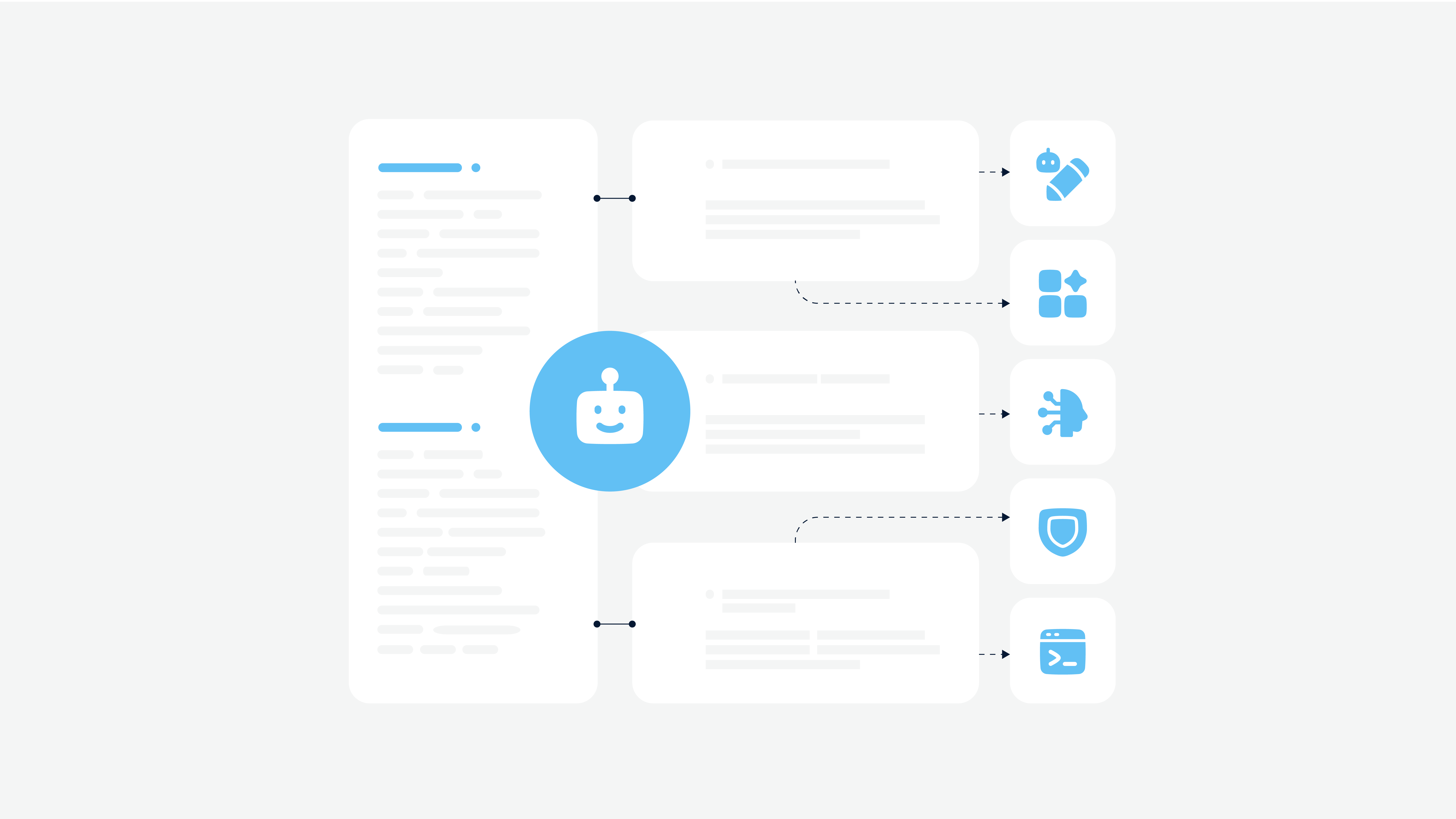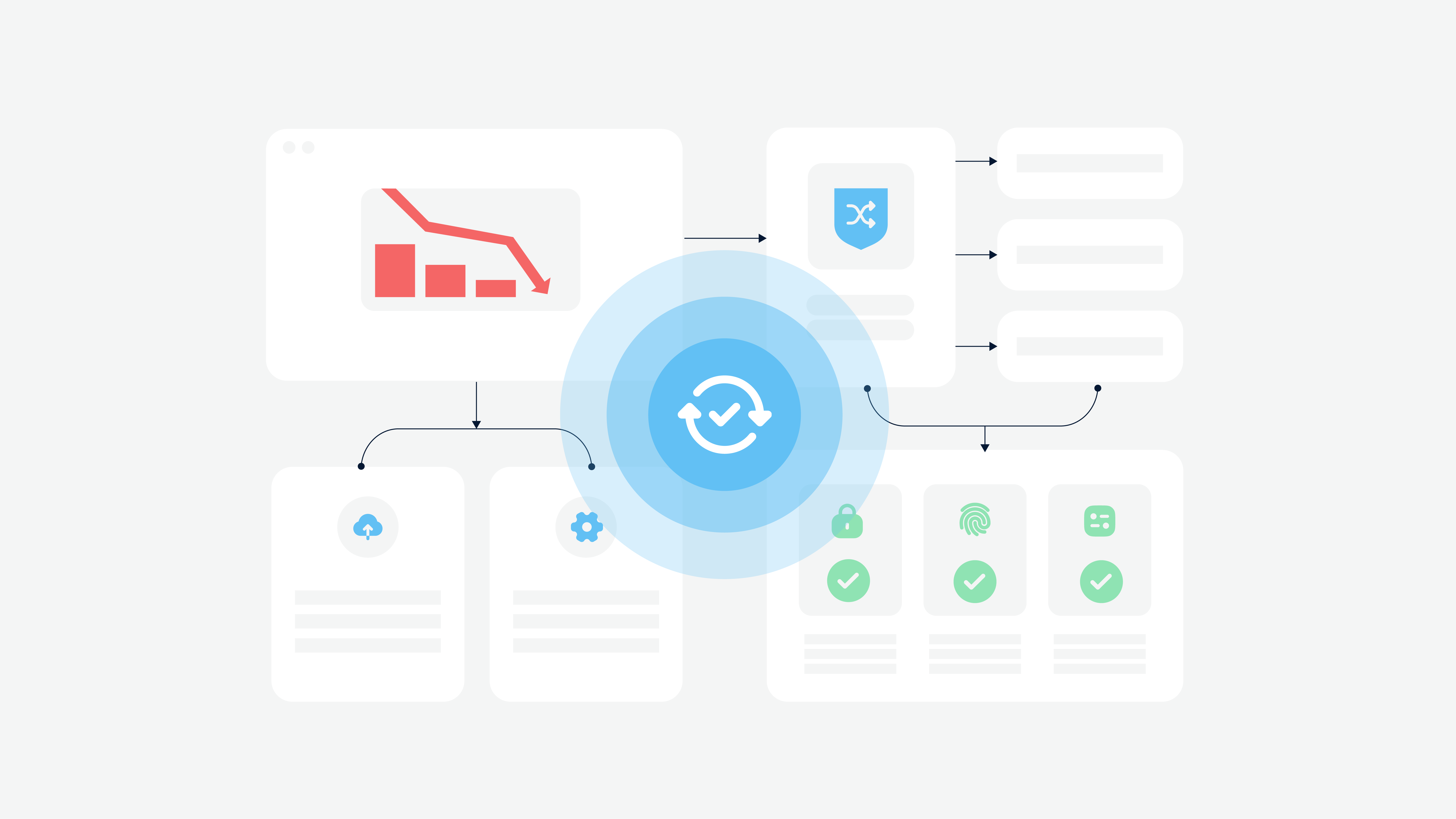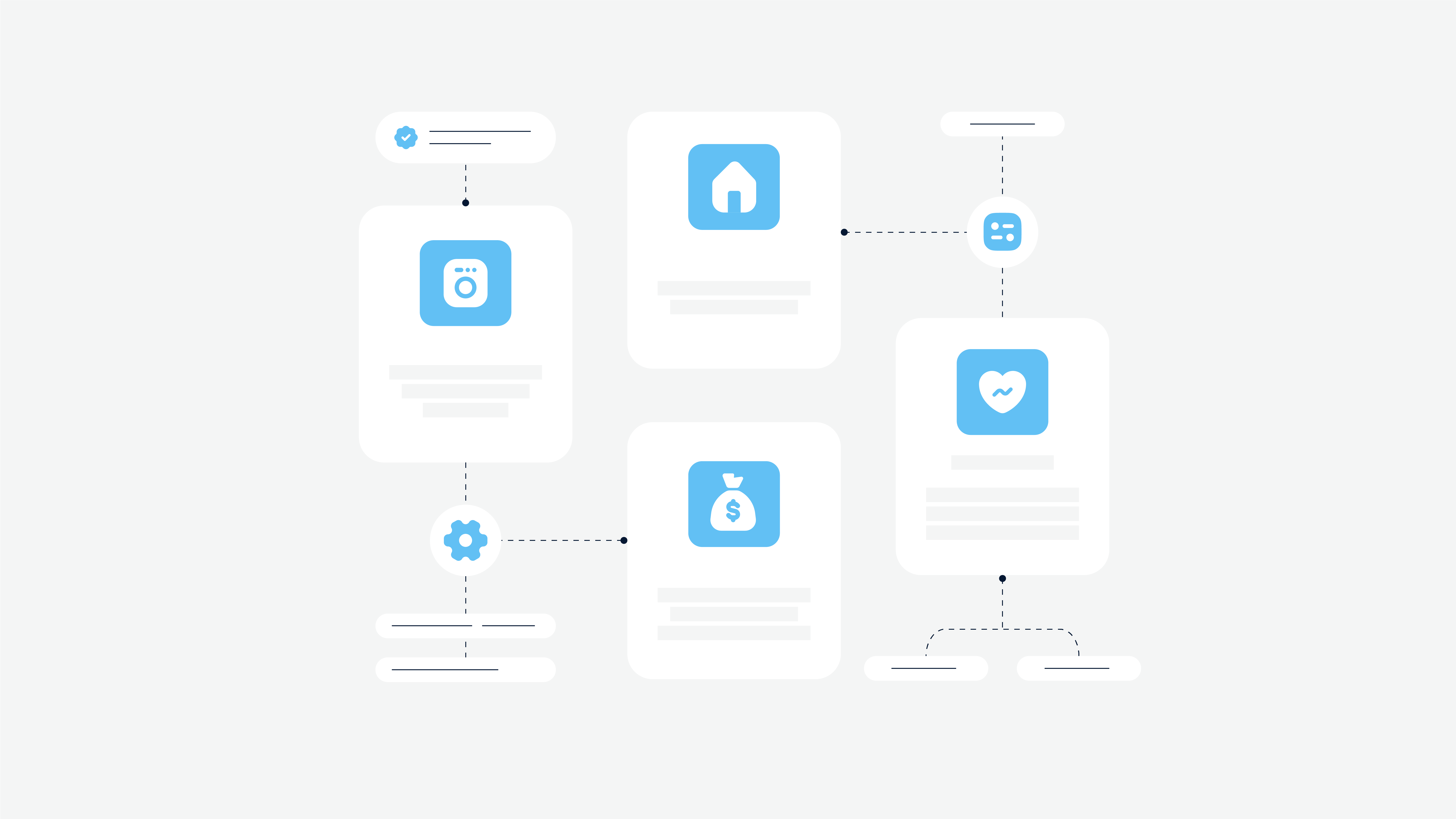Artificial intelligence is rapidly gaining momentum. Business owners are thinking about how to make more money by integrating artificial intelligence into business processes. But employees worry about keeping their jobs. Therefore, the question of the ability of artificial intelligence to replace a person is relevant for our time. Let’s see what the numbers say.
The AI market is growing and will continue to do so. As you can see, in 2022, the size of the worldwide artificial intelligence market was estimated to be $136.6 billion. And by 2030, the global AI market is projected to reach $1,811.8 billion with a CAGR of 38%. The evidence suggests that adopting artificial intelligence is inevitable and will accelerate in the next few years. But refrain from jumping to conclusions about answering the question.
In this article, we’ll figure it out:
- What is AI?
- Areas affected by AI
- Spend less, earn more by integrating artificial intelligence
- Іmplement artificial intelligence for your business in 4 steps
- Cadabra Studio’s expertise in implementing AI in businesses
Stay till the end.
If you are looking for the best company in the USA & Canada, you are in the right place.
Read this article till the end, it will help you to understand your question.
Better yet, sign up for a free consultation with our software development experts.
What is AI?
Artificial intelligence (AI) is A subfield of computer science that focuses on creating algorithms and software to carry out tasks that ordinarily need human intelligence, like perception, reasoning, learning, and decision-making. AI systems are becoming increasingly valuable for various applications because they can be built to evaluate massive volumes of data, identify patterns, and react to new inputs instantly.

Types Of AI
There are four basic types of Artificial Intelligence systems. You must categorize them based on their functionalities.
Reactive Machine AI
This category of AI includes devices that only use data from the present and consider the immediate environment. Reactive AI systems are unable to conclude the data to choose the best course of action. They can perform a narrower range of pre-defined tasks.
An instance of reactive machine AI is spam filters for email to prevent advertisements and phishing attempts from reaching our inboxes.
Limited Memory AI
Limited Memory AI can make informed and improved decisions by studying past data from its memory. Such an AI has a short-lived or temporary memory that can store past experiences and evaluate future actions.
Self-driving cars are Limited Memory AI that uses the data collected in the recent past to make immediate decisions.
Theory Of Mind AI
The first two types, reactive machines and limited memory are examples of AI already existing. Theory of mind and self-awareness are AI types that will be built in the future.
This category of machines is involved in playing a significant role in psychology. This type of AI will focus mainly on analyzing human emotions so that human beliefs and thoughts can be better comprehended.
Self-Aware AI
The most advanced type of artificial intelligence is self-aware AI. When machines can be aware of their own emotions and the feelings of others around them, they will have a level of consciousness and intelligence similar to human beings. This type of AI will also have desires, needs, and emotions.
We are far from self-aware AI because there is still so much to uncover about the human brain’s intelligence and how memory, learning, and decision-making work.
Areas affected by AI
AI is easily expandable, adaptable, and applied to various business processes. Due to its ability to provide intelligence to tasks that previously lacked it, AI is being used on a colossal scale. Here are some areas that have been particularly affected by AI:
Healthcare
AI can potentially transform the healthcare industry, from drug discovery and clinical trials to patient diagnosis and treatment. For example, AI can analyze medical images and detect abnormalities that human doctors might miss or develop personalized treatment plans based on a patient’s genetic information.
Finance
AI has also been increasingly applied in the finance industry, from fraud detection and risk management to algorithmic trading. One example is using AI-powered chatbots in customer service, which can help reduce wait times and provide more personalized support.
Transportation
The transportation industry has been revolutionized by AI, from self-driving cars to traffic management systems that can optimize traffic flow and reduce congestion. For instance, self-driving trucks can help improve the efficiency of freight transportation and reduce the number of accidents caused by driver fatigue.
Marketing and Advertising
AI has also been applied in the marketing and advertising fields, from predicting consumer behavior to generating targeted ads and recommendations. For example, AI-powered recommendation systems can analyze a user’s browsing history and purchase patterns to suggest products they might be interested in.

Education
AI has also been applied in education, from personalized learning programs to chatbots that can answer student questions. For instance, AI-powered language learning apps can provide instant feedback on pronunciation and grammar, helping learners to improve their language skills more quickly.
In a corporate context, AI has a wide range of applications, but one of the most important things to remember is that clean data improve AI. As a result, these algorithms operate best in organizations with a well-established data process and a lot of data. Data gathering and storage are commonplace now, but industries with established data banks, including finance, healthcare, and logistics, will stand to gain the most from AI solutions.
These are just a few examples of the many areas that AI has impacted. The possibilities are endless, and as AI continues to evolve and improve, it will likely play an increasingly important role in almost every aspect of our lives.
Spend less, earn more by integrating artificial intelligence
The adoption of AI is transforming business operations. The way organizations connect with their customers, employees, and customers is being changed by AI’s ability to automate processes, generate data-driven insights, and deliver personalized experiences. AI improves human intelligence and optimizes processes to make work more efficient. As a result, companies are rethinking their strategies and looking at new perspectives in the age of AI.
Since, AI can boost productivity, promote efficiency, and give businesses a competitive edge, companies are keen to use it. Three main factors attract firms to speed up their AI investments – automation, increased efficiency, and providing new services. Let’s look at it in more detail.

Automation
Technology-based automation can increase productivity, save costs, increase accuracy, and improve scalability. By automating repetitive procedures, businesses can save time and resources, allowing people to focus on more strategic goals. Automation can also promote uniformity and reduce errors, leading to better decision-making and improved customer experience.
Additionally, automation can assist businesses in scaling their operations more successfully, enabling them to handle more clients or transactions while using the same resources to process larger volumes of data. However, the effectiveness of automation in achieving these benefits can depend on various factors, such as the type of business, the complexity of the processes, and the quality of the automation system.
Increased efficiency
Enhancing operational effectiveness is crucial for enterprises since it can result in various advantages. Streamlining operations can minimize expenses and enhance profitability, leading to better customer satisfaction by enabling the company to provide prompt responses, better-quality products and services, and fewer errors.
Providing new services
Integrating AI into business processes can help companies identify new opportunities to create and deliver innovative services. By leveraging advanced analytics and artificial intelligence technologies, businesses can gain valuable insights into customer behavior, market trends, and emerging opportunities.
Overall, integrating intelligence into business processes can help companies stay competitive and responsive to changing customer needs and market trends while driving innovation and growth by creating new services and revenue streams.
Іmplement artificial intelligence for your business in 4 steps
- Define the desired end goals. Before implementing AI in your business, consider the software that will assist in achieving these goals and focus on refining specific features or capabilities that align with the organization’s goals. Identifying metrics that will be used to measure success is also crucial.
- Invest in smart software. The chosen AI software should be flexible, enabling easy deployment. It should also allow advanced predictive modeling applications to leverage the power of data and data flow graphs to build the data models.
- Evaluating the capabilities of tech adoption. The internal capabilities of the business need to be assessed to determine how best to implement the technology.
- Test the system to assess how it’s helping achieve the set goals. Metrics such as order times, sales improvement, and productivity should be used to determine how best to optimize AI use in the business.
Cadabra Studio’s expertise in implementing AI in businesses
As Cadabra Studio is a web and mobile development company, our specialists are at the forefront of digital technology. Therefore, the introduction of technologies into work processes is inevitable. We use AI as a tool that accelerates and optimizes work processes. Next, I will give several examples in which areas we have implemented AI.
Please note: Cadabra Studio does not share our client’s personal information or any detailed information about our company, especially files under NDA.
Developing
In the development process, we implement artificial intelligence to speed up routine processes and save the precious time of our specialists. In addition to speeding up the work of developers and QA Engineers, the integration of AI helps save customers money, especially for those with a limited budget or for startups.
Unit testing
In short, it is a software testing method that consists of separately testing each program code module. A module can be anything, such as a procedure or a function. Through unit testing, developers can identify bugs and fix them at different stages of development. Unit testing is an essential layer of work that takes a lot of time.
But with the introduction of Gpt chat into the testing process, our specialists save much more time while maintaining high-quality work. In this way, the client can receive the finished project faster than expected.
Test Case
A test case is a sequence of actions to check any functionality that describes how to reach the expected result. The method of writing test cases and their structure may differ in each company or team: they have different depths of the description of the necessary actions and results and have different structural components.
Although using AI tools, you can significantly reduce the time of routine form filling and increase the efficiency of the QA Engineer team. Gpt chat can be used both for writing test cases and for checking tasks for all possible errors.
UI/UX
While artificial intelligence (AI) is mainly used to predict human actions based on the analysis and interpretation of data, the principle of user experience (UX) also aims to predict user behavior. So when both try to predict human behavior, they can work hand in hand in different contexts.
Personalizing the user experience, whether in terms of design elements or performance, helps a business brand enjoy user appreciation and increased engagement, leading to conversion.
Moreover, to personalization, AI identifying pain points and relative areas of advantage; can also help improve the functional performance of any application.
Involving AI in the work of designers can be helpful in various research, data collection, or solving routine tasks, freeing up the designer’s time to generate new ideas. In the creative process, it can be used for several types of functions:
recognition and classification;
prediction and cluster analysis;
generation and selection of objects and their transformation;
clearing rights due to the creation of new materials based on original sources;
graphics and text generation;
In addition to the above functions, AI helps generate new ideas. When the client does not fully understand what exactly he wants, and in order to complete existing ideas or expand the information component of the project, designers use artificial intelligence tools.
Conclusion
So, wrapping up, AI has been transforming businesses’ operations and proving constant value. Also, It significantly reduces operational expenses, streamlines and automates corporate procedures, enhances customer communications and secures consumer data.
It can also be concluded that AI will not replace human labor in the near future. Artificial intelligence is created to increase efficiency and automate and improve business processes. Besides, AI is only a tool, and its efficiency depends on human support.
The decision to introduce artificial intelligence tools into business processes is always up to you. But Cadabra Studio can always provide any technical support. Our specialists can handle any task, even if you think it is unresolved. Contact us to get help with your project!



